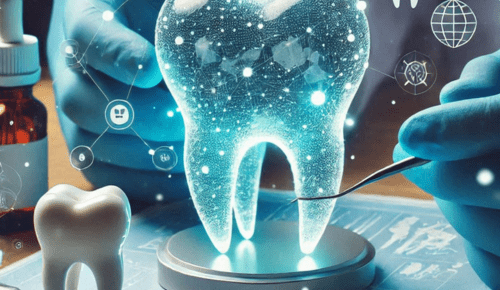Dentists play a key role in maintaining oral health. Most dental procedures are routine and help prevent more serious issues. Understanding these procedures can remove anxiety about visits. General dentists often perform three common procedures: cleanings, fillings, and crowns. Cleanings are essential. They remove plaque and tartar that regular brushing might miss. Fillings repair cavities and prevent further decay. Crowns restore damaged teeth, allowing them to function normally again. Each procedure supports oral health and helps avoid emergencies. However, sometimes urgent needs arise, such as emergency dental Wichita Falls services, which focus on immediate pain relief and stabilization. Knowing what to expect during these visits can make them less intimidating. Regular check-ups and cleanings enhance the effectiveness of these procedures. This proactive approach helps maintain a healthy smile and prevents complications. Whether dealing with routine care or emergencies, understanding these basics empowers you to make informed decisions about dental health.
Routine Dental Cleanings
Dental cleaning is one of the most common procedures performed by general dentists. It’s often the first step in maintaining oral health. During a cleaning, a dental hygienist or dentist removes plaque and tartar from teeth surfaces. This process helps prevent cavities and gum disease. Cleanings also involve polishing teeth to remove surface stains and leave a smooth finish.
Regular cleanings are important. The Centers for Disease Control and Prevention recommends visiting the dentist every six months for a cleaning and check-up. This regular care helps catch potential issues early, reducing the need for more invasive procedures in the future.
Fillings for Cavities
Fillings are crucial for repairing cavities caused by tooth decay. When a dentist finds a cavity, they remove the decayed material and fill the space with a suitable material. Common filling materials include composite resins, amalgam, and gold. Each material has different benefits and costs, allowing patients to choose based on their needs and budget.
| Filling Material | Benefits | Considerations |
| Composite Resin | Natural look, bonds well to teeth | May wear out sooner |
| Amalgam | Durable, cost-effective | Less aesthetic, contains mercury |
| Gold | Long-lasting, strong | Expensive, requires multiple visits |
Choosing the right filling material depends on several factors including the location of the cavity and personal preferences. Discuss options with your dentist to find the best solution for your situation.
Crowns for Damaged Teeth
Crowns are used to restore the function and appearance of damaged teeth. A crown covers the entire tooth, providing strength and stability. They are often recommended for teeth with large fillings, fractures, or after root canal treatment.
Materials for crowns include porcelain, metal, or a combination of both. Porcelain crowns offer a natural appearance, making them popular for front teeth. Metal crowns, while less aesthetic, provide great strength and are ideal for back teeth.
The process of placing a crown usually takes two visits. During the first visit, the dentist prepares the tooth and takes an impression. A temporary crown is placed while the permanent crown is being made. On the second visit, the permanent crown is fitted and cemented in place.
Emergency Dental Services
While routine procedures keep our teeth healthy, emergencies can happen. A dental emergency may include toothaches, broken teeth, or oral injuries. It’s important to seek immediate care to prevent further damage or infection.
Emergency dental services, such as those offered in Wichita Falls, focus on providing immediate pain relief and stabilization. Knowing where to find emergency services ahead of time ensures quick action when needed. The American Dental Association offers tips on handling dental emergencies until professional care is available.
Preventive Measures
Preventive dental care is essential. By adopting a comprehensive oral hygiene routine at home, we can reduce the likelihood of needing more extensive procedures. Daily brushing and flossing, alongside regular dental visits, form the foundation of good oral health.
Educating yourself about common dental procedures helps alleviate anxiety and empowers you to take control of your oral health. Regular interaction with a trusted dentist builds a comfortable environment for discussing your dental concerns and making informed decisions.
Understanding these basic dental procedures not only enhances your dental visits but also contributes to lifelong oral well-being. Embracing preventive care and being prepared for emergencies ensures that your smile stays healthy and vibrant.

